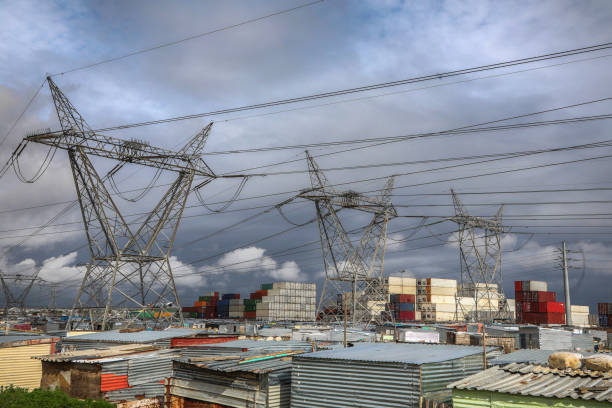
A plumber, as the name implies, is someone who works with drainage and sewage systems. He is also trained in the installation and maintenance of potable drinking water systems. He is also responsible for the installation of plumbing fixtures. In the event of flooding, a plumber is required. In order to keep his job, he must be trained and certified to conduct emergency repairs.
First-person game for a plumber
Plumber is an interactive puzzle game that you can play as a plumber. You have to connect pipes and adjust valves to prevent flooding. Additionally, you must deal with large bats and angry mice. The sewers' air is toxic. The game isn't recommended for gamers who are into workout games.
It is a free game and offers HD graphics. The main goal is to connect pipe pieces in order to form a complete pipe. The water level will drop the more pipes you connect. Overflow can still occur so it is important to plan and implement effective strategies.

Plumbing duties
A plumber is a skilled tradesperson with the responsibility of installing and maintaining the plumbing system in buildings. This involves reading blueprints and planning the installation and maintenance of piping networks. To ensure that the installation meets code, he must collaborate with other tradespeople as well as project managers. He must be able to work in all weather conditions. He may be required to cut openings in buildings to install pipes, select and assemble valves and maintain a list of orders, depending on the type of project.
A plumber must have excellent communication skills and an understanding of mechanics. They also need to be able to understand various components and systems. Additionally, plumbers need to be adept at solving problems and be able find solutions quickly. Plumbers may have to work on weekends or in the evenings to resolve plumbing problems.
Cost to hire a plumber
The cost to hire plumbers will vary depending on where they are located and what type work is needed. Residential plumbers tend be more expensive that commercial plumbers. They typically charge between $100-$80 an hour. Plumbers who work for smaller companies often charge lower rates. The plumber's price includes all supplies, insurance, and other costs. Additionally, plumbers are often required to pay union fees which can add between 20% and 25% to the cost to hire a plumber. These fees are paid by the union representing plumbers to help them provide insurance and benefits for their employees.
Plumbers usually charge between $80-$130 per hour. The price that you pay depends on the size of your plumbing job, the place where the job is being done, and the level or expertise required. Rates for plumbers also depend on whether they are licensed. Some plumbers may charge a flat fee for travel, which could be added to the final cost of the job. For a full bathroom remodel, this fee could be as low as $40 to $50. Others may charge up to $900.

Opportunities for plumbers
If you love solving problems, you might find a job as a plumbing professional a great fit. Plumbers spend a lot time diagnosing the root cause of problems and then solving it immediately. To apply for a job as a plumber, be sure to list your skill sets and approach to problem-solving in your cover letter. Monster lists all the available jobs.
Plumbing is a highly skilled trade that requires skilled labor. It is a well-suited trade for today's workforce. However, the industry will continue to be affected by new technologies. Many trade schools offer classes that teach you how to properly use plumbing tools and pipe systems. You may also need welding classes for some pipefitting apprenticeships.
FAQ
What does my SCA cover
Your SCA will outline the specific scope of work required. This includes how long it will take to complete, what materials and equipment are needed, as well as whether any permits are required.
Is there a limit on the amount I can spend on this project?
No. No. But, it is possible to negotiate a lower cost with the contractor.
What is a service-contract agreement?
A Service Contract Agreement (SCA) is an agreement between two parties to provide services to each other. The SCA defines those services, how much time and effort should be spent on them, who pays for them and when they start. The agreement also outlines what happens to either party if it violates its obligations.
What is a Service Agreement Format?
A service agreement templates is a template that contains all the details for a particular service agreement. The service agreement template is used for creating a standard form agreement.
Service agreements are crucial because they set the boundaries between two parties.
They help both parties understand each other's needs and expectations. They also make sure both sides know what they are agreeing to before they sign the deal.
Do I have to think about any additional factors?
Yes. Make sure to check your local laws about what type of projects you can do and what conditions you have to comply with. Some states require you to get approval from the council to build. Others say you just need to inform them of your plans. Check with your local authorities to see where they stand on the issue.
Who will pay for the service
The SCA will specify which party is responsible to pay for the service. It may be possible to sue the court for compensation if the service provider has not been paid in full.
Statistics
- (1) Ascertain the extent to that offers are based on the payment of overtime and shift premiums; and (2) Negotiate contract prices or estimated costs without these premiums or obtain the requirement from other sources. (acquisition.gov)
- Depending on the client's trustworthiness and financial stability, a deposit is usually 10 to 50% of the total contract amount. (lawdepot.com)
- (ii) Name, address, and telephone number of each proposed first-tier subcontractor with a proposed subcontract estimated at $10 million or more. (acquisition.gov)
- Don't take their anger personally, they are mad about the situation 99% of the time. (activatemylicense.com)
- Reasonable late fees go up to 25% per year on unpaid sums. (lawdepot.com)
External Links
How To
What is the difference between service agreements and contracts?
A service arrangement is an agreement whereby a provider agrees with a customer to perform services. Both parties are bound by it. The term service refers only to a company’s products, advice, and information. It does not include financial or financial services.
A contract is a legally binding document that outlines the terms and conditions of a business relationship. A contract is a legal document that you sign when you purchase a product or service from a retailer. You are bound to pay for it later. When you accept employment, you are entering into a contract.
No formal documentation is required for a service agreement. A service agreement written is not often used in practice. Verbal agreements, however, are common.
However, a service agreement has several advantages over a contract:
-
A service agreement is flexibler than a contractual contract.
-
It allows a service company to change its mind without being penalized.
-
It allows for greater flexibility by the service in deciding how to provide the agreed-upon service.
-
It is a clear record that demonstrates what was said.
-
It is simpler to prosecute a service provider.
-
It is cheaper to draft a service agreement than a contract.
-
It is less likely it will result in litigation.
-
It is much easier to terminate a service contract than a contractual agreement.
-
Modifying a service agreement is much easier than changing a contract.
-
It is possible to use a service agreement for an ongoing relationship.
-
It is possible to share the cost of drafting a service agreement with a third party.
-
A provision requiring arbitration is possible when drafting a contract of service.
-
You can add provisions about confidentiality, non-disclosure and proprietary rights.
-
You can specify the duration of the contract (e.g. one year).
-
It is possible for the service agreement to be subject to a certain condition precedent.
-
It is possible to declare that the service provider will only be liable for negligence, gross negligence or fraud.
-
It is possible to limit the liability for consequential damages.
-
It is possible to allow the service provider to enter into another agreement with a different customer.
-
It is possible to give notice of termination under certain circumstances.
-
It is possible to require the service provider to provide a warranty.